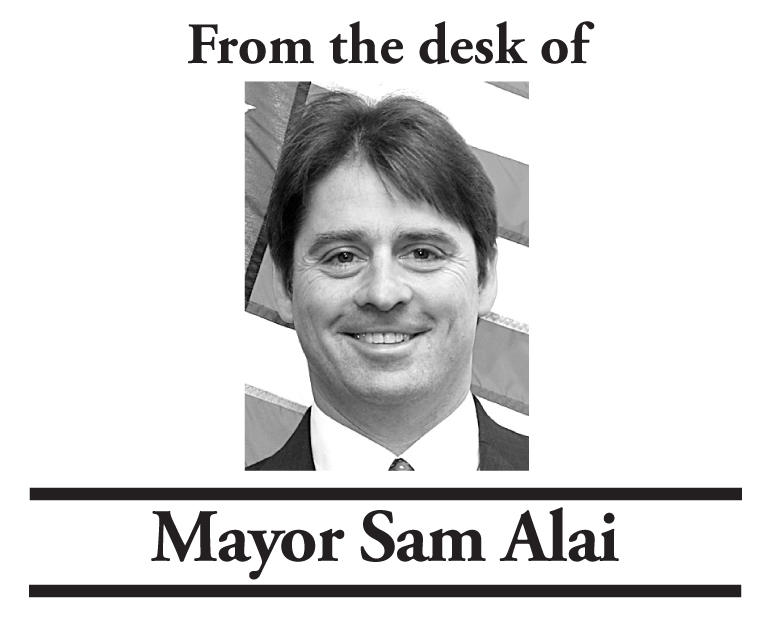From the Mayor’s Desk
Happy New Year! I hope that all of you had an enjoyable holiday season and are settling into 2025. At city hall, the last few weeks of December were unexpectedly busy. Typically, things are pretty quiet there as we close out each year, but the end of 2024 was very different because a situation developed that has never happened before.
At our Dec. 16 council meeting, the annual vote to approve the new budget for the following year (2025) took place. The budget was passed, but because it did not receive the required five votes of council to take effect on Jan. 1 (because the previous year’s budget always expires on December 31), it would not go into effect for 30 days. That meant no money could be spent until Jan. 16, and our city would have to shut down from Jan. 1 to January 16. Fortunately, our Finance Director Dave Pfaff, our Law Director Vince Ruffa and I were able to consult with the state auditor and outside legal counsel, all of whom assisted us with finding a solution to keep the city running for that two-week gap.
I called a special council meeting for Dec. 23, and, thankfully, the six council members in attendance all voted “yes” for the temporary budget that carried us into the permanent budget that will cover the remainder of 2025.
I’ve been asked lots of questions about how this happened, why it happened, how the annual budget process works, etc. So, I thought it would be easier if I shared each question that has been asked and provide you with an answer that covers each one.
Why can’t the budget be passed with a simple majority (4 out of 7 votes)? Because legislation is always written as “declaring an emergency,” a super-majority of five votes is needed for the legislation to take effect immediately. With the simple majority of four votes by Councilpersons Mahnic, Wolf, Pavlica, and Boldt, it still passed, but it would not take effect for 30 days.
Why did three Council members vote “no”? Unfortunately, the rationales for a “no” vote seem to change. Reasons cited were concerns about the pay structures for the mayor, fire chief, and police chief (all of which Council previously approved quite a few years ago) and a lack of time to ask questions about the proposed budget (which is an inaccurate statement).
Are the pay structures of those three positions connected to the budget approval? No, they are not. The Law Director, the Finance Director, and some Council members made that clear multiple times to the three “no” votes.
Was the budget process rushed? Absolutely not! The budget process starts in September and the draft was sent to council on Nov. 6 for their review. Multiple committee meetings were held, as well as discussions at work session and council meetings. There were about 10 opportunities for council members, as well as the public, to ask questions. Both Mr. Boldt, council president, Ms. Mahnic, service committee chair, and Mr. Wolf, finance committee chair, facilitated open dialogue at the meetings they led. Council could have also convened additional meetings, if they chose to, but they did not.
Why did the special council meeting take place on Dec. 23rd, when one council member was on vacation, rather than on Dec. 30? The answer is simple. Our residents needed confirmation that all city services would continue without interruption. Also, our employees were understandably concerned about losing two weeks’ pay if we shut down, so we needed to be sure that the temporary budget was secured ASAP. The Dec. 23 meeting was scheduled on Dec. 18 so there was ample notice to all council members.
At the Dec. 23 special council meeting, one of the council members who voted “no” the week before said that the budget process was working as it was supposed to. What did he mean? Honestly, I have no idea. That particular councilman, as well as the other two original “no” votes, made no attempt to find a solution to the unnecessary problem they created.Since two of the original “no” votes on Dec. 16 became “yes” votes on Dec. 23, what changed in the budget to get them to change their minds? The answer is simple. Nothing changed. It was simply prorated amounts to get us through the gap in January. So why did they vote “no” originally but then vote “yes” a week later? I don’t know for sure, but I’m guessing that the unhappiness of the community and our employees made them rethink their position.

